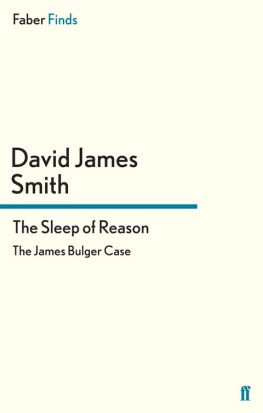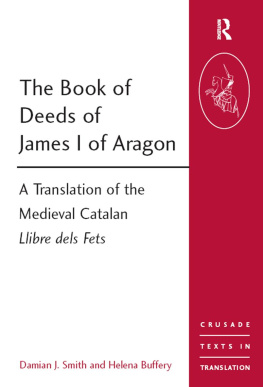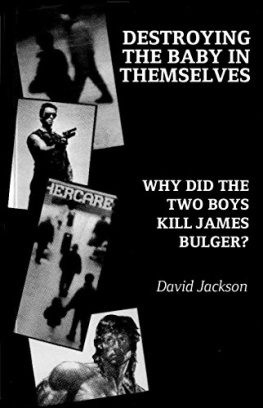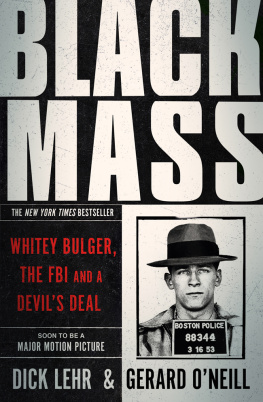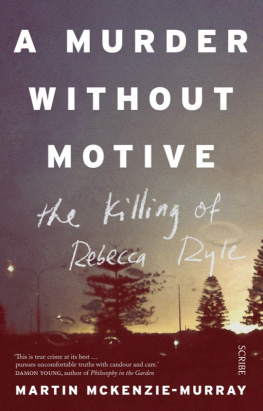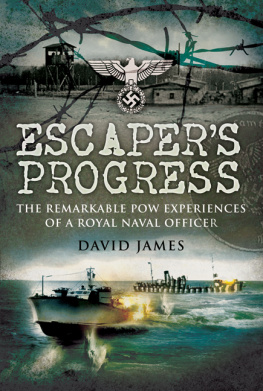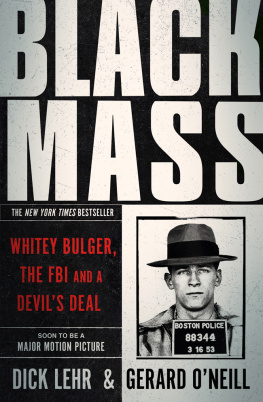Everything in this book is true to the best of my knowledge. This is a work of non-fiction, and there is no imagining, invention or embellishment of what happened.
There have been some changes of names to protect identities in accordance with the orders of the trial judge.
A CKNOWLEDGEMENTS
The people who deserve most thanks for any merit in this book had better remain anonymous. They wanted to see the story told truly and without prejudice. They gave me their trust and confidence, and their friendship. Neither money nor favours were ever asked for, offered or given. Many other people on Merseyside were willing to give me their time and cooperation, despite the sensitivity of the subject. I owe them all a thank-you. Merseyside Police offered considerable assistance, within the limits of their own concern about the disclosure of evidence in advance of the trial, when the bulk of this book was researched and written. Im grateful to all the officers who helped me, but special thanks are due to Jim Fitzsimmons, Albert Kirby, Brian Whitby and Ray Simpson. Ive characterised one or two police officers in the book. This doesnt mean they solved the case on their own. I hope readers will see them as representative of the many officers involved in the inquiry. Thanks also to Dominic Lloyd and Jason Lee of Paul Rooney and Co., solicitors for Robert Thompson, and to Sean Sexton who represents the family of James Bulger. I was grateful for the advice and support of the editor of this book, Mark Booth, and my friends Dominic Ozanne and John Pickering. Dominic, more than anyone, contributed to the structure and shape of the narrative. Thanks, randomly, to Jane Gregory, Georgina Capel, Julian Browne, Tim Hulse, Rosie Boycott and Sue Douglas. Thanks to Jamie Bruce, because he deserves it. Some time before James Bulger died, I met Dr Gwyneth Boswell of the University of East Anglia who had produced a report for The Princes Trust about young people who commit serious crimes. Gwyneth and the report taught me a great deal and, in a way, her insight was a starting point for TheSleepOfReason. But my best and wisest ally, as usual, was Petal, who listened, read, transcribed, and tolerated my complete absorption in the case. I wanted to acknowledge the anguish of the parents and wider family of James Bulger. I hope they will appreciate the spirit in which this book was written, and forgive me when I also acknowledge the suffering of the two boys who were responsible for the killing, and their families.
James Bulger is buried at Kirkdale Cemetery in Liverpool, which is just about midway between Kirkby, where he lived, and Walton, where he was killed by two ten-year-old boys, Jon Venables and Robert Thompson, in February 1993 . At his death he was a month short of his third birthday. When I last visited the grave in the early spring of 1996 the substantial white headstone had been inlaid with Jamess photograph an enduring image of a cherubic son, all blond hair and toothy grin. The inscription betrayed nothing of his fate: Goodnight and God bless, little innocent babe. The plot and surrounding area were scattered with toys and flowers, one bouquet left with a card signed From a father in Reading: The pain of mourning never goes, the reason for your loss, only God knows.
God knows, indeed, why James Bulger died. It is as true now as it was then that the murder has never really been explained and the motive for the crime remains a mystery. This book, the result of considerable research and a painstaking, sometimes distressing assembly of the facts, was my attempt to offer some insight and understanding.
I had gone to Liverpool within a few weeks of the murder, rented a small house there for the duration and soon found myself at the heart of the case, well connected to some of the participants. The Sleep of Reason was first published a year later in 1994 and, such was the interest in this case, it went on to be reproduced in numerous editions and translations around the world.
By that spring of 1996 , when I went to pay homage at the cemetery, I was getting ready to write a lengthy new magazine article. I was still in contact with Ann Thompson, the mother of Robert, who was then three years into his detention and still only thirteen years old. Ann had knitted bonnets helmets, she called them for my newborn daughter, whom I had brought to see her. As we sat talking in her home, the phone rang and it was Robert calling from his secure unit. Ann told him I was there and offered me the phone to speak to him. I held up a flat hand in refusal that conversation would have got both of us into trouble and later, when I dropped Ann at the unit for a visit she pointed out the distant figure of Robert, who stood watching from a window.
When my article appeared it described something of Anns life she would often sit watching television clips of Denise Bulger, the mother of the victim, which she had recorded on video. She would imagine going on television herself, setting the world to rights, saying things that really were better left unsaid If that child had been wearing reins this would never have happened was one and generally letting everyone know how much she cared for and believed in her son and was suffering on his behalf. Ann Thompson had suffered a lot over the years and felt all that suffering acutely.
She had left Liverpool and was living with her family under an assumed name, but she went about in a state of perpetual dread at being unmasked the guilt and fear were so powerful they seemed visible to her. I said it was as if she felt she had a neon sign on her head: Mother Of Bulger Killer. Missing her home, she would become maudlin, listening to Daniel ODonnell songs such as The Leaving Of Liverpool and reminded herself of her old life by cooking scouse, which I described as a one-pot dish made with cheap cuts of meat. I also referred to Anns VHS player as a tired old video recorder. She was upset and thought I had patronised her and, after a difficult phone call our contact came to an end. It was a tricky relationship and, perhaps because I liked and respected her in spite of everything, I had often worried that I was simply exploiting her for my journalism. I knew that Ann was always grateful and relieved not to be judged by the people she met and I could see from the start that her own wretched childhood had left her vulnerable and poorly prepared to become a caring adult.

